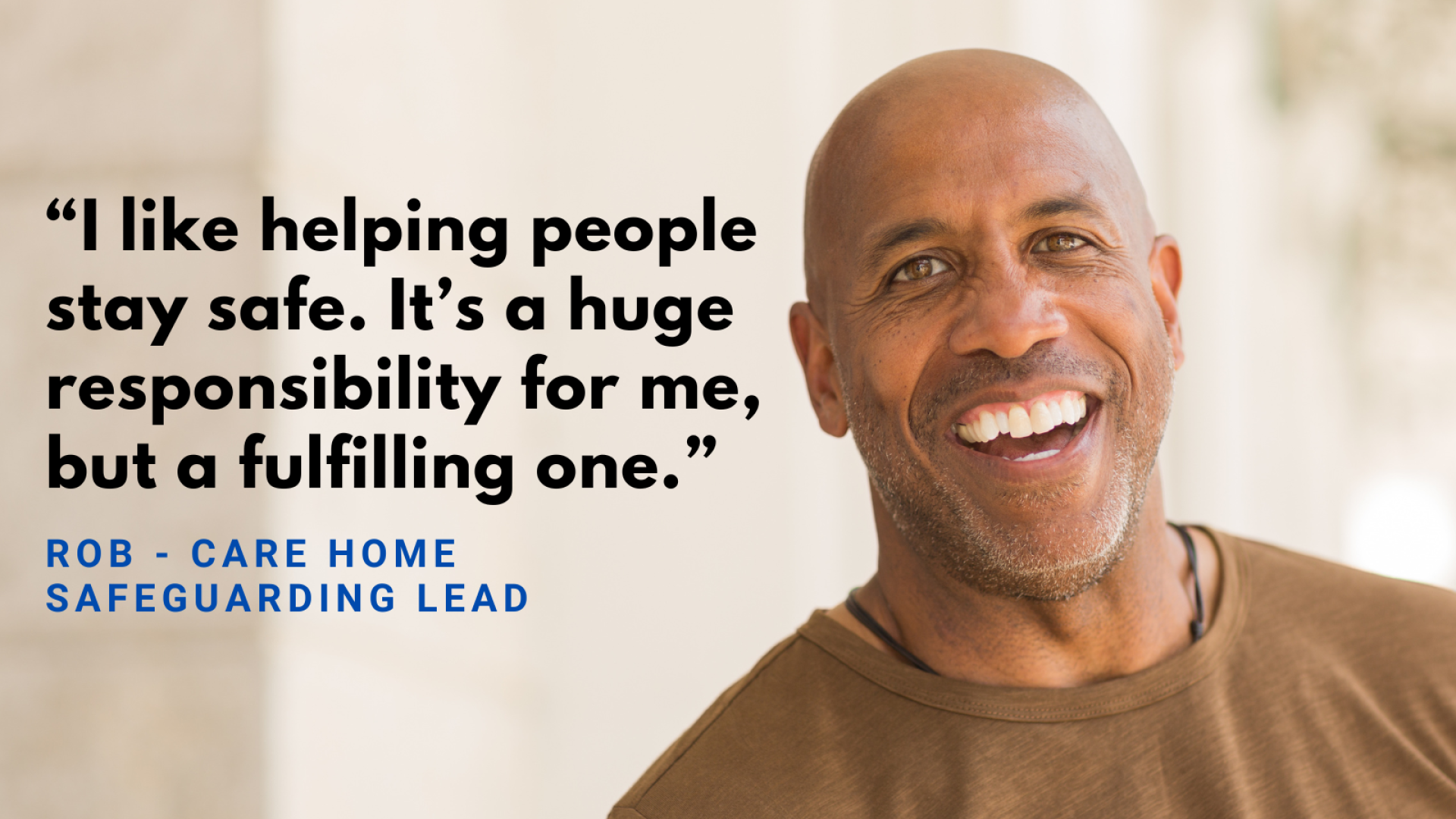MONDAY: What’s My Role in Safeguarding Adults?
On day one of Safeguarding Adults Week 2023, we want to encourage individuals and organisations from a diverse range of sectors to come together and consider ‘what’s my role in safeguarding adults?’ Safeguarding adults is relevant and important in all sectors. Safeguarding is the responsibility of all staff, volunteers and individuals within an organisation or the wider community.
Meet Rob
Rob is a safeguarding lead at a local Residential Care Home for Older Adults.
A designated safeguarding lead has overarching responsibilities regarding safeguarding in their organisation. They will have an in-depth knowledge of safeguarding guidance (such as Safeguarding Adults Guidelines) and related pieces of legislation (e.g. the Care Act 2014) that their workplace must follow.
What are the Responsibilities of a Designated Safeguarding Lead?
The DSL has a number of important responsibilities to fulfil on an ongoing basis. As the lead, it’s also part of their duty to ensure others in the organisation understand and follow safeguarding procedures. They will also work closely with any other senior individuals to coordinate safeguarding duties, such as a Board or Governors.
The responsibilities of a designated safeguarding lead include:
- Being available for all staff to discuss any safeguarding issues or concerns. They should ensure that all staff are aware of the DSL and deputy contact details.
- Ensuring that cases of suspected or actual adult safeguarding concerns are referred to the appropriate agencies. The DSL will gather further information and evidence if needed.
- Ensuring that all staff are fully trained in safeguarding and know how to spot and raise concerns. They will also help to maintain an effective staff supervision programme.
- Undergoing regular refresher training themselves to ensure their safeguarding knowledge is as up to date as possible and in line with new guidance.
- Ensuring that adequate reporting and recording systems are in place for safeguarding procedures, and that there are appropriate transferal procedures for records if students move.
- Ensuring that the safeguarding policies and procedures are up to date with the most recent statutory guidance, and that everyone who has safeguarding duties are familiar with any updates.
- Communicating with families on policies and procedures, as well as any concerns or referrals where appropriate.
- Complying with any Local Safeguarding Adults requirements.
- Ensuring their organisation has sufficient safer recruitment procedures.
- Being aware of any adults who may require specific safeguarding needs and have specific vulnerabilities.

Katie's Story
Linda* is a care home worker and has weekly visits with Katie, a young woman with moderate learning disabilities. Katie has been speaking to a young man over social media and has told Linda he's been sending her nude videos.
What should Linda do?
.pdf file